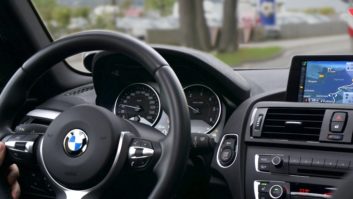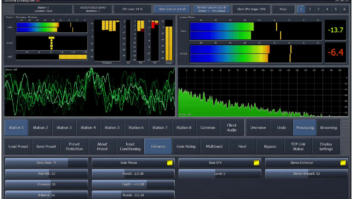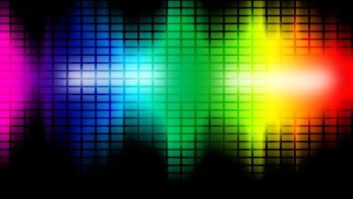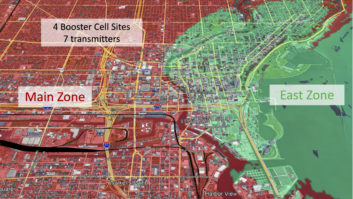The Arguments Against HD Radio
Jul 15, 2009 11:41 AM
While HD Radio has its supporters, there are just as many dissenters among broadcasters. One Radio magazine reader is fed up with the naysayers and offered his opinion. He asked to remain anonymous.
The complaints I hear about HD Radio sound hollow. It’s common to hear these complaints:
- Consumers don’t know what HD Radio is.
- Why would a consumer want a radio that can’t be accessed by steering wheel controls?
- There’s no content worth listening to.
- The HD Radio signals don’t penetrate building.
- HD Radio means a higher electric bill for the station.
- Jobs could be saved by turning of HD Radio.
- Multicast streams make the primary channel suffer in quality.
- Of all the valid criticisms of HD Radio there are, these aren’t them.Consider this: In 1970, if you asked radio broadcasters their thoughts on FM, they would have offered similar arguments:
- Adding another FM transmitter doubles the transmitter power bill.
- Many FM stations were record changers in the back of the AM studio.
- No one was putting FMs in cars…you had to install a converter.
- The profit model that sustained it was the use of the SCA for Muzak.
- People, for the most part did not even know FM existed.
- Adding stereo to FM cut the coverage area in half and increased the noise floor. “There goes the quality.”
- No one made money selling spots for an FM station.
- The coverage of FM vs. a clear-channel AM was much less.
- While it’s tempting, it’s ill-advised for an engineer to render opinions outside his expertise or responsibility. So let’s cut out the arguments that the engineer has no real business making and boil it down to engineering.“HD Radio doubles the transmitter power bill.”
True. New services cost money. We’re only now learning efficient ways to run this technology. It’s young technology.“Jobs would be saved by turning HD Radio off and saving on the power bill.”
That has no basis in fact. It’s a decision that is not the engineer’s to make. Besides, the power bill of an HD Radio-enabled station would save (depending on the market) one of the lowest-paid employees at the station. Not considering benefits coverage — just salary — considering these times of lower broadcast cash flow there’s no assurance that would be done. And don’t necessarily think it would just pad the wallets of a fat-cat CEO…I’d love to see the fat-cat CEOs this year. I only see those sweating to make their leveraged debt payments on stations making single-digit margins. — continued on next page
The Arguments Against HD Radio
Jul 15, 2009 11:41 AM
“The signals don’t penetrate buildings or travel far.”
Yes, and there’s a major push with the FCC to rectify that, although it is also being opposed by those protecting the analog signal outside the protected contour.
Out of all the arguments, there are two items that have some basis in engineering. It just burns me up when the only arguments most people can come up with are the same ones that were used for FM, television, the automobile, and the telephone. Protecting the status quo has never been the successful position. But the arguments of HD Radio opponents do nothing but point at how the new technology threatens the status quo. The whole reason we’re in the HD Radio mess we’re in is because of the status quo! When the NAB supported Eureka 147, what became the European and Canadian DAB systems, they were soundly shouted down because:
- It provided the potential of new owners and competitors.
- Existing owners would be required to buy new transmitters to remain competitive.
- A cell-site arrangement would require more towers, even if they would be lower power and lower cost.
- If a migration plan that moved existing broadcasters to DAB channels, then all broadcasters would be operating from (gasp) a level signal field. Differences in signal, pattern, etc. would go away. 100kW FMs and 50kW clear channel AM’s would no longer have an advantage.
- See why we’re here?HD Radio has many problems. HD Radio has many drawbacks. We can either work through them or try and get the industry behind something better; fast! Standing still or pushing against it is not the answer.Stop telling us why this won’t work and help us make it work. We’re here because of our own design.












